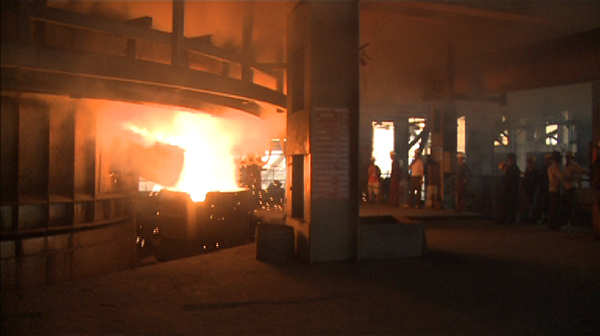 Most factories at the Pasakha Industrial Estate can minimise huge energy loss if energy efficient methods are adopted.
Most factories at the Pasakha Industrial Estate can minimise huge energy loss if energy efficient methods are adopted.
Experts say energy loss; especially heat energy in the form of smoke, can be recovered to generate electricity.
This also means saving money and factories becoming eco-friendly.
In early May this year, researchers from India studied the energy efficiency of the factories at the industrial estate.
They found out most of the plants were using relatively old technologies resulting in huge amount of energy loss during manufacturing process.
A Ferro silicon plant loses more than 70 percent of its total energy input during its operation.
Through a method called Waste Heat Recovery, these high volume and high temperature gases can be used to generate 3.3 Mega Watt of electricity, enough to light 660 households.
A Researcher with the Energy and Resources Institute in India, Prosanto Pal, said they found there is a potential to introduce energy efficient technologies and practices which can be economically attractive for the units.
“It can reduce carbon emission which can mitigate climate change and be overall good for Bhutan’s economy…”
Each Waste Heat Recovery system would require an investment of Nu 200 M.
“The challenge here is our industries are very small and the initial investment to some extend is quite huge,” said Chief Program Officer with the National Environment Commission Secretariat, Karma Tshering.
He said private industries are sceptical about investing because of the cost involved.
“So from the government’s side, I think what we can do is to try to see how much support we can give in terms of incentives, in terms of facilitating or in terms of coordinating and getting a network and keeping in touch with other experts and also with donors so that the private industries can invest and come into this.”
The stakeholders are now discussing ways to gather funds to transform the industrial estate into an energy-efficient park.









